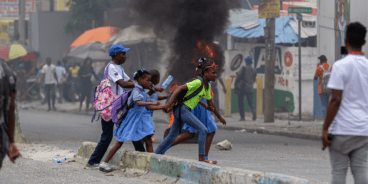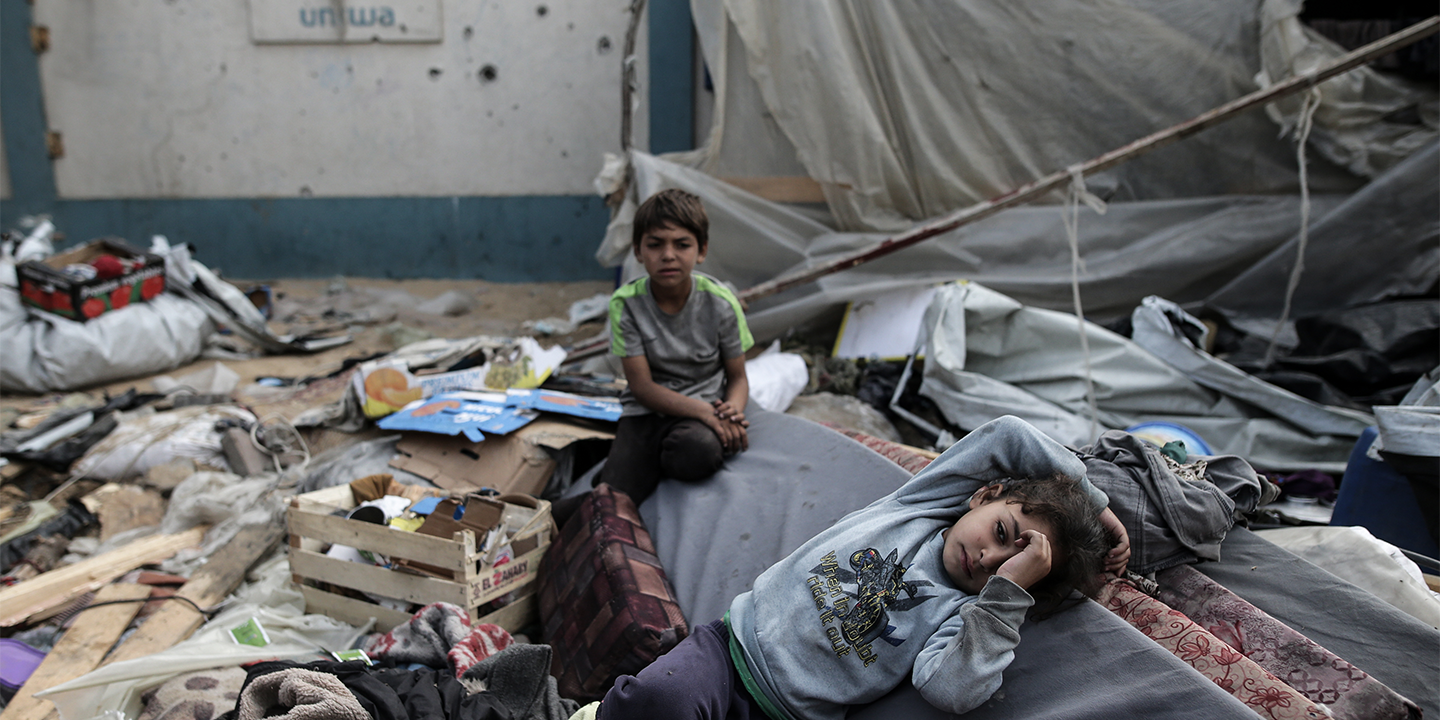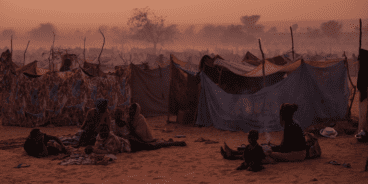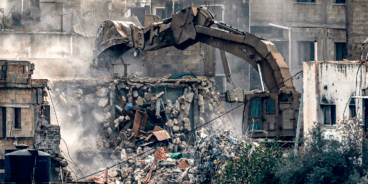

Atrocity Alert No. 399: Israel and the Occupied Palestinian Territory, Sudan and Myanmar (Burma)
Atrocity Alert is a weekly publication by the Global Centre for the Responsibility to Protect highlighting situations where populations are at risk of, or are enduring, mass atrocity crimes.
ISRAEL INTENSIFIES ONSLAUGHT IN GAZA AS UN SECURITY COUNCIL BACKS CEASEFIRE PLAN
In recent days, Israeli forces have intensified their strikes by air, land and sea, as well as ground operations across central Gaza, with horrific consequences for Palestinian civilians. During a particularly deadly military operation on 8 June, land and air strikes pounded An Nuseirat Refugee Camp, killing at least 274 Palestinians and injuring nearly 700 others. The Israeli military operation rescued four hostages who had been held captive since 7 October by Palestinian armed groups. Israeli forces were also purportedly “targeting terrorist infrastructure” in An Nuseirat.
The Office of the UN High Commissioner for Human Rights (OHCHR) said, “The manner in which the raid was conducted in such a densely populated area seriously calls into question whether the principles of distinction, proportionality and precaution – as set out under the laws of war – were respected by the Israeli forces.” OHCHR expressed similar concern following an Israeli strike on 6 June which hit a UN Relief and Works Agency for Palestine Refugees in the Near East (UNRWA) school in An Nuseirat, killing at least 40 people and injuring 74 others. The UNRWA school, like many others across Gaza, was sheltering thousands of internally displaced Palestinians. According to UNRWA, at least 450 people sheltering in UNRWA facilities have been killed since 7 October.
Meanwhile, dozens of air raids have continued to hit residential homes near Rafah and Gaza City. Since early May, intensified hostilities and military operations in Rafah alone have displaced more than one million people. These operations – coupled with the continued closure of the Rafah crossing – have significantly destabilized the flow of humanitarian aid and worsened the humanitarian catastrophe in Gaza.
On 10 June the UN Security Council (UNSC) passed Resolution 2735, endorsing a ceasefire proposal put forward by United States President Joe Biden and urging both parties to fully implement the terms “without delay and without condition.” The plan would unfold in three phases with the aim of firstly securing an immediate ceasefire with the release of hostages, the exchange of Palestinian prisoners, the full withdrawal of Israeli forces from Gaza, the return of Palestinians to their homes and the distribution of humanitarian assistance at scale, then eventually a permanent end to hostilities and a multi-year reconstruction plan for Gaza, among other requirements.
In the resolution, the UNSC “rejects any attempt at demographic or territorial change in the Gaza Strip, including any actions that reduce the territory of Gaza.” During the UNSC meeting, the Israeli representative emphasized that Israel’s war aims remain unchanged, and that Israel “will continue until all of the hostages are returned and until Hamas’ military and governing capabilities are dismantled.”
UNSC Resolution 2735 must be implemented without delay. Ensuring the unimpeded and safe flow of humanitarian aid at scale throughout Gaza must be paramount, including through Israel’s immediate implementation of all provisional measures orders issued by the International Court of Justice.
OVER 100 CIVILIANS KILLED IN THE LATEST HORRIFIC ATTACK IN SUDAN
During the morning of 5 June, the Rapid Support Forces (RSF) reportedly killed more than 100 civilians, including at least 55 children, during an attack on Wad al-Noura in Sudan’s Al Jazeera State. Other sources report that at least 180 civilians were killed and dozens more injured. Information gathered by the Office of the UN High Commissioner for Human Rights indicates that the RSF used weapons with wide-area effects, including artillery shells. Photos have circulated on social media showing dozens of bodies draped in cloth and laid out for burial at the town’s public square. UN Resident and Humanitarian Coordinator for Sudan Clementine Nkweta-Salami emphasized, “Even by the tragic standards of Sudan’s conflict, the images emerging from Wad Al-Noura are heartbreaking.”
In December the RSF captured Wad Medani, the capital city of Al Jazeera State. In recent months the Sudanese Armed Forces (SAF) have attempted to recapture territory with a major counteroffensive. Fighting characterized by widespread and grave human rights violations and atrocity crimes, including sexual violence and the looting of humanitarian supplies, in and around Wad Medani prompted more than 500,000 people to flee in one month alone. Wad al-Noura is in the far west of Al Jazeera State and approximately 20 miles from the nearest frontline, according to news sources. The RSF claimed they attacked military positions around the town to preempt alleged assaults by the SAF. While the exact circumstances remain unclear, the attack purportedly appears to have deliberately targeted the civilian population. Throughout the conflict, the RSF and SAF have perpetrated indiscriminate and deliberate attacks against civilians and civilian objects, often with rocket shells, bombardments and heavy artillery, that likely amount to war crimes and crimes against humanity.
The RSF have also utilized the conflict to launch a systematic campaign of ethnic cleansing and large-scale attacks targeting non-Arab communities, possibly amounting to the crime of genocide. On 5 June, following weeks of escalating violence in El Fasher, the last remaining SAF stronghold in Darfur, UN Special Adviser on the Prevention of Genocide Alice Nderitu stated, “it is unquestionable that risk factors and indicators for genocide and related crimes are present, and the risks are increasing.” On 7 June UN Secretary-General António Guterres expressed deep concern about the immense suffering of the Sudanese population, stressing, “it is high time for all parties to silence their guns across Sudan and commit to a path towards sustainable peace for the Sudanese people.”
The UN Security Council (UNSC), African Union (AU), Intergovernmental Authority on Development and states with influence over the warring parties and external actors should continue to support efforts aimed at establishing a permanent ceasefire, while urgently prioritizing the protection of civilians and unimpeded humanitarian access. The UN and UNSC must explore all options for civilian protection, including under Chapter VII and VIII of the UN Charter. The AU Peace and Security Council should conduct an initial assessment for an AU taskforce on Sudan. This initial assessment can be utilized to operationalize an AU-led peace support operation pursuant to UNSC resolution 2719 or by other means for the protection of civilians and securing of humanitarian corridors. States parties to the Genocide Convention must uphold their legal obligation by taking measures to prevent and punish the crime of genocide.
VIOLENCE AND ARSON ATTACKS CONTINUE TO ESCALATE ACROSS MYANMAR
From 29 May to 2 June Myanmar’s (Burma) military junta killed at least 75 ethnic Rakhine civilians during attacks on villages outside of Sittwe, the capital of Rakhine State. Soldiers reportedly entered Byine Phyu and forced residents to the center of the village, where they separated men and women for questioning and subsequently killed many of the residents. A survivor recalled the harrowing event, stating, ‘[The soldiers] started questioning the male villagers. If [the men] had a tattoo on their back, neck or arms, [the soldiers] stabbed the tattoos with knives. They were asked whether they were [Arakan Army] AA or not. Villagers did not have time to answer. They were shot dead immediately.” Reports indicate that the soldiers raped the women before killing them.
The junta’s attacks near Sittwe are the latest deadly incident following weeks of escalating attacks on civilians and intensifying clashes with the Arakan Army (AA) across Rakhine State. The junta has intentionally stoked ethnic divisions and violence in Rakhine State between ethnic Rakhine and Rohingya communities. On 17 May the AA took control of the predominantly Rohingya town of Buthidaung, killing at least 30 people, displacing thousands of Rohingya civilians and reportedly setting fire to the town. Prior to this attack, junta forces, including Rohingya who were forcibly conscripted, set fire to the homes of ethnic Rakhine. The junta has reportedly threatened to restrict humanitarian aid to the Rohingya in Sittwe that dodge the conscription notice, as well as allegedly mandated evacuations of towns surrounding Sittwe. Local residents have claimed that the junta has forced the displaced civilians to relocate to Sittwe, raising fears of the junta’s plans to use them as human shields to defend the capital.
The UN Special Rapporteur on the situation of human rights in Myanmar, Tom Andrews, said, “Once again, the world seems to be failing a desperate people in their hour of peril while a hate-driven unnatural disaster unfolds in real time in Myanmar’s Rakhine State… the military’s role is clear in fostering toxic conditions in Rakhine State, from propaganda fueling ethnic tensions to the forced recruitment of young Rohingya men into the junta’s military.” UN Secretary-General António Guterres has condemned the escalating violence, calling upon all parties “to exercise maximum restraint, prioritize protection of civilians in accordance with international humanitarian law and prevent further incitement of communal tension and violence.”
Meanwhile, the crises in other parts of Myanmar have significantly deteriorated as the junta continues to use widespread arson and bombing campaigns to target populations, including in Chin, Kayin and Kayah states. On 3 June a junta airstrike on a wedding ceremony in Mingin Township, Sagaing Region, killed at least 28 people. Targeted and indiscriminate attacks on civilians, as well as killing and torture are prohibited under international law and may amount to war crimes and crimes against humanity.
The international community must impose additional sanctions on the junta to deprive the military of the funds, jet fuel and legitimacy it requires to continue to perpetrate atrocities against civilians. The AA and military must cease causing harm to the Rohingya and other civilians, as well as refrain from targeting and destroying protected civilian infrastructure.
Related Content


Twenty years of the Responsibility to Protect and the unfulfilled promise in Darfur
